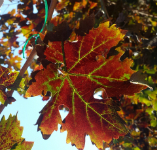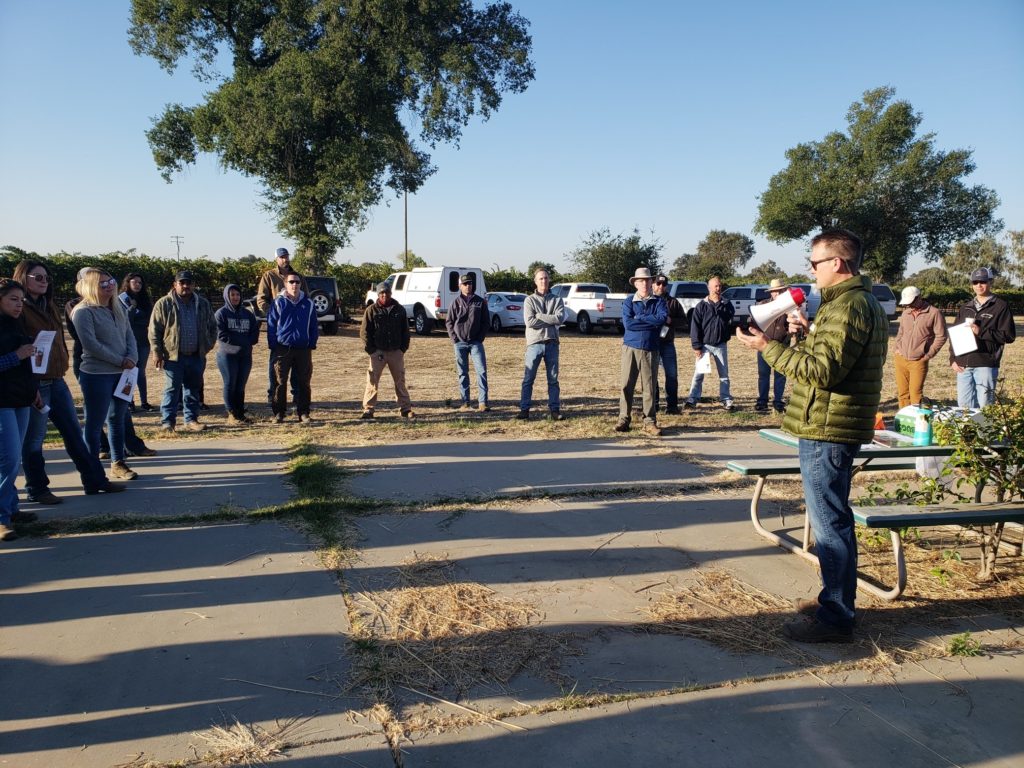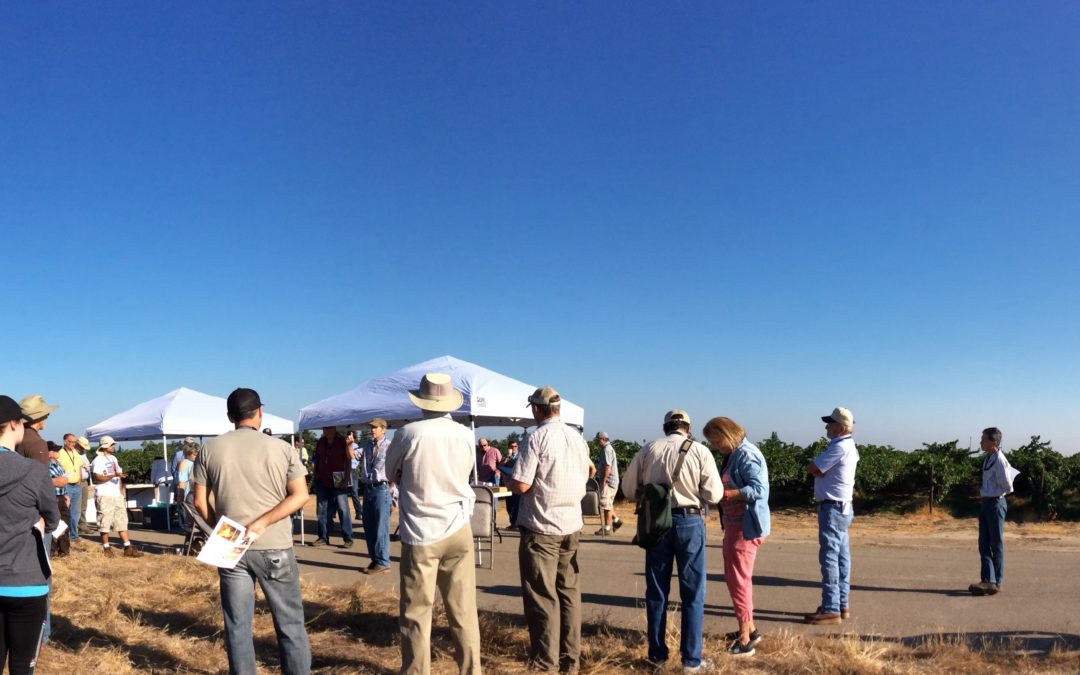FEBRUARY 3, 2020. BY STEPHANIE BOLTON, PHD.
A team including the Lodi Winegrape Commission is awarded funding for a four-year project under the revamped CDFA BIFS Program
JUST ANNOUNCED
________________________________________
The California Department of Food and Agriculture (CDFA) has awarded funding for a project to be administered through the Office of Pesticide Consultation and Analysis (OPCA) Biologically Integrated Farming Systems (BIFS) grant program.
Project leader Dr. Kent Daane of UC Berkeley and collaborators will receive $1 million in funding for “Refinement and Implementation of an Areawide Program for Vineyard Pathogens and their Insect Vectors.” This project will establish two demonstration blocks of at least 1,000-acres each where pheromone disruption tools will be used to control vine mealybug, the insect responsible for vectoring grape leafroll disease (GLD). Vines infected with GLD will also be systematically removed to further prevent the spread of this economically devastating disease. Grower outreach will be conducted in collaboration with the Vineyard Team and the Lodi Winegrape Commission to expand the adoption of these low-impact practices in place of chemical insecticides. The project work will be done in the Lodi and Central Coast winegrape regions and take four years to complete.

Photo: Charlie Starr. Leafroll 3 Virus Symptoms.
The goal of the BIFS grant program is to demonstrate and refine integrated pest management (IPM) programs designed to reduce chemical insecticide inputs, especially non-selective, biologically disruptive insecticides with higher risk to human health and the environment. Projects foster farmer-to-farmer information exchange and on-farm demonstrations of IPM practices while allowing growers to maintain yields and quality. Outreach efforts bring together scientists, farmers, and consultants in a collaborative, co-learning environment that enables farmers to learn and adapt farming practices to local conditions.
Detailed information on this program, including the application process and application requirements, is available at: cdfa.ca.gov/oefi/opca/bifs.html.
“We are excited to collaborate on this project to help grow the science and practice of addressing this critical issue in the industry.” – Kris Beal, Executive Director, Vineyard Team
“The project will be a partnership and collaboration among the vineyard outreach programs of the Lodi Winegrape Commission and the Vineyard Team, farmers, pest control advisors, and University of California research and extension personnel, which make up the Management Team. The overall goal is to develop GLRaV control strategies that can be extended and utilized long after the project’s 4-year term.” – Dr. Kent Daane, Project Leader, UC Berkeley

“It’s been 25 years since the first BIFS program grant was awarded to Lodi with the goal of demonstrating practical sustainable farming practices. That original program was the predecessor of Lodi’s world-renowned sustainable viticulture program, the Lodi Winegrowers Workbook, and the LODI RULES certification program. With the latest BIFS grant award, Lodi is once again taking a leadership role in practical sustainable viticulture with the goal of tackling leafroll viruses, one of our industry’s toughest long-term challenges.“ – Chris Storm, Viticulturist, Vino Farms
HISTORY OF THE BIFS PROGRAM (from the BIFS 2019 Request for Proposals document, available online):
The Biologically Integrated Farming System (BIFS) program ran from 1995 to 2010. Projects focused on fostering farmer-to-farmer information exchange and on-farm demonstration of integrated farming practices that promote IPM and biological systems while allowing growers to maintain profitable businesses. Originally a project of Community Alliance with Family Farmers (CAFF), BIFS transitioned to a grant program administered by the University of California (UC) Sustainable Agriculture Research and Education Program (SAREP), based at UC Davis. The program received supplemental funding and cooperation from the California Department of Pesticide Regulation (CDPR) and the US Environmental Protection Agency (EPA). The SAREP BIFS program funded twelve projects in eleven different farming systems.
The adoption of BIFS practices was found to reduce pesticide use, improve soil fertility, decrease erosion and nitrogen leaching, and increase populations of beneficial insects, fishes, birds, and game. For example, BIFS wine grape growers nearly eliminated the use of chlorpyrifos and other organophosphate insecticides in the Central Coast. In BIFS apple orchards, organophosphate use was decreased by 33 percent through the use of pheromone mating disruption. Post project research found that the 650 growers in the Lodi Winegrape Commission continued to implement BIFS practices after the project ended.
Have something interesting to say? Consider writing a guest blog article!
To subscribe to the Coffee Shop Blog, send an email to stephanie@lodiwine.com with the subject “blog subscribe.”
To join the Lodi Growers email list, send an email to stephanie@lodiwine.com with the subject “grower email subscribe.”
To receive Lodi Grower news and event promotions by mail, send your contact information to stephanie@lodiwine.com or call 209.367.4727.
For more information on the wines of Lodi, visit the Lodi Winegrape Commission’s consumer website, lodiwine.com.


